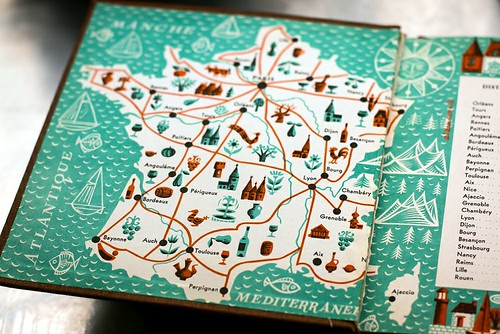Posted: 31 Mar 2014 by David Lebovitz
French cuisine is, once again, a
popular topic of discussion these days. Actually, anything controversial about
France seems to foster a lot of heated debates. On one side are the folks
decrying French-bashing, complaining that the French are unfairly picked on.
Then there are the others who eat up books about how superior the French are,
because they are better at parenting, they miraculously stay thin, they don’t have
plastic surgery, everyone enjoys months of vacations, and Paris
is a magical place where love, fashion, and fine food, flourish on the cobbled
streets of the city. The truth, of course, lies somewhere in between and, like
any where, there is the great, the ordinary, and a bit of the not-so-good. I
want to play the referee but there’s usually a bit of truth in most compliments
and criticisms, and the reality is more complicated.
French cuisine gets its share of
praise and criticism, some deserved, some not. One truth I’ve learned after
living here for over a decade is that people really like to eat. The outdoor
markets are crowded, lines snake out the door at bakeries, and cafés and
restaurants are packed – even on Tuesday evenings – in spite of la crise (the economic crisis).
But what is French cuisine?
Traditionally, cuisine du
potager (cooking from the garden) or cuisine du marché (cooking from the daily
market) were the foundations of French cuisine. Cuisine du potager was born out of economic and
common sense; you cooked and ate what was closest to where you lived. Part of
it was out of necessity (there was no Chinese garlic or avocados from Peru
way-back-when), but mostly because the food was either free, picked from your
own garden, or grown nearby. So you were always eating seasonally and locally.
In France, you were cooking and eating local products; fresh cream, butter, and
cheeses made in your region, peas from your garden, eggs from the neighbor’s
chicken coop, and bread from the village bakery.

No comments:
Post a Comment